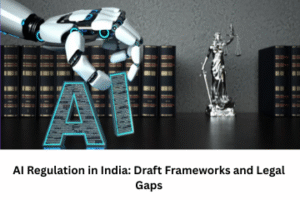Diljit Dosanjh Concert Controversy: Unfair Trade Practices and Legal Ramifications
Written by Bhaviya Singh
Table of Contents
- Introduction
- Understanding Unfair Trade Practices Under Indian Law
- Key Legal Issues in the Diljit Dosanjh Concert
- Legal Remedies Available to Consumers
- Conclusion
- Reference
Introduction
The entertainment sector, particularly large-scale events such as concerts, is subject to a slew of legislative restrictions designed to promote transparency and fairness in customer interactions. Concerts hosted by internationally known performers, such as Diljit Dosanjh, draw large crowds and generate significant commercial revenue. However, as these events became more popular, there was an increase in complaints about misrepresentation, misleading advertising, ticket price manipulation, and inability to deliver basic services. Such activities not only impact consumer happiness but also create serious legal concerns concerning the implementation of consumer protection legislation in India. This article dives into the legal framework that governs unfair trade practices, investigates the specific issues raised by Diljit Dosanjh’s concert, and discusses the legal remedies accessible to impacted consumers.
Understanding Unfair Trade Practices Under Indian Law
The Consumer Protection Act, 2019, defines “unfair trade practice” under Section 2(47) as any deceptive or unethical practice by businesses aimed at misleading or cheating consumers. These tactics include misleading advertising, misrepresentation of goods or services and violations of consumer agreements. In the context of huge events such as concerts, any failure to execute promised services, fraudulent claims in advertisements or exploitation through ticket pricing may constitute unfair trade practices.
Key Legal Issues in the Diljit Dosanjh Concert
- Misleading Advertisements The concert’s promotional materials reportedly misrepresented the real experience provided. If the organizers promoted things such as special guest performances, certain stage designs, or other extravagant components that were not included in the concert, this is considered a breach of trust and a violation of Section 2(47) of the Consumer Protection Act. Misleading advertisements are a significant source of consumer complaints about entertainment and live events.
- Cancellation and Non-Refundable Tickets One of the main concerns that developed from the Diljit Dosanjh concert was last-minute cancellations or changes to the event location. Failure to offer timely refunds or compensation to ticket holders constitutes a deficiency in service under Section 2(11) of the Consumer Protection Act. Consumers are entitled to full refunds in the event of cancellations or significant changes in event arrangements and failure to do so may result in legal consequences for the organizers.
- Price Gouging and Scalping Another issue mentioned during the event is increased ticket pricing and scalping (the practice of reselling tickets at an inflated price). The Consumer Protection Act of 2019 prohibits selling goods or services at a greater price than stated, as well as participating in price manipulation to exploit demand. If concert organizers or third parties participate in such practices, harmed customers can seek legal action.
- Failure to Provide Promised Services Concertgoers may also file legal claims if the event fails to satisfy the expected level of service. Poor seating arrangements, weak [2]sound systems, or failure to achieve the claimed performance may constitute a service deficiency. The legislation requires service providers to satisfy the standards they have promised and any serious gap can be contested in court.
- Force Majeure and Event Cancellation Clauses In some cases, concert organizers may invoke force majeure provisions owing to unanticipated events such as weather problems or natural disasters. However, the implementation of force majeure must be consistent with the contract and legal requirements. If the force majeure clause is abused or unfairly implemented, consumers can question its validity and seek compensation for any damages incurred as a result of cancellations or delays.
- Venue Safety and Compliance with Local Laws Concert organizers must guarantee that the event location follows local safety rules, such as fire safety standards, crowd management, and security procedures. Failure to comply with these regulations may result in legal action from local authorities and subject the organizers to responsibility claims from concert attendees in the event of an accident or injury. In addition to unfair trade practices, this could lead to criminal charges under state-specific laws governing public safety and large-scale gatherings.
- Third-Party Service Providers and Liability Third-party service providers in concerts may include security companies, sound engineers, and vendors. If any of these partners fails to provide services or there are instances of negligence, the concert organizers may be held vicariously accountable under the law. This could include claims for breach of contract, failure in service, or even carelessness under tort law.
Legal Remedies Available to Consumers
Concert attendees who believe they were subjected to unfair commercial practices have many legal options under the Consumer Protection Act of 2019. The following remedies may be sought:
- Filing a Complaint in Consumer Forums: Consumers may file complaints in district, state or national consumer forums depending on the value of the claim. They can seek refunds, compensation for mental agony, and punitive damages against the concert organizers.
- Class Action Lawsuits: In cases where multiple concert attendees are affected by the same issues, a class action lawsuit can be filed to represent the interests of all the consumers involved. This is particularly useful in large-scale events like concerts.
- Damages and Compensation: Consumers can claim compensation not only for the cost of the ticket but also for any additional expenses incurred, such as travel costs, hotel bookings, or other losses resulting from the cancellation or postponement of the event.
Conclusion
The legal concerns surrounding Diljit Dosanjh’s concert serve as a timely reminder of the obligations concert organizers and event management organizations have to their customers. Transparency, fair pricing, truthful advertising, and proper service delivery are not only business virtues; they are also legal requirements under Indian law. Unfair commercial practices harm the organizers’ reputations while also exposing them to major legal responsibilities such as penalties, refunds, and class action lawsuits.
As the entertainment business expands, organizers must find a balance between economic interests and consumer rights, ensuring that all aspects of their events, from ticket sales to venue safety, conform with the Consumer Protection Act of 2019 and other applicable legislation. Consumers, on the other hand, should be watchful, informed of their rights, and ready to take legal action if those rights are abused. Finally, establishing trust and transparency will improve consumer experiences and help prevent future legal disputes.




